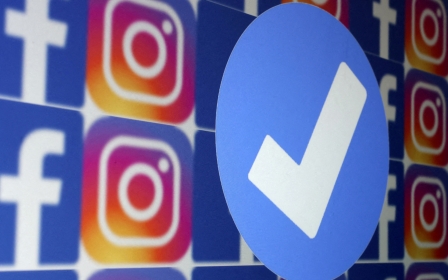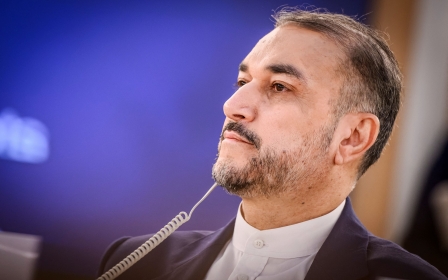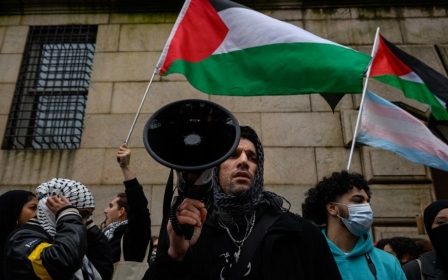Meta removes accounts of Israeli group attacking Gaza aid convoys
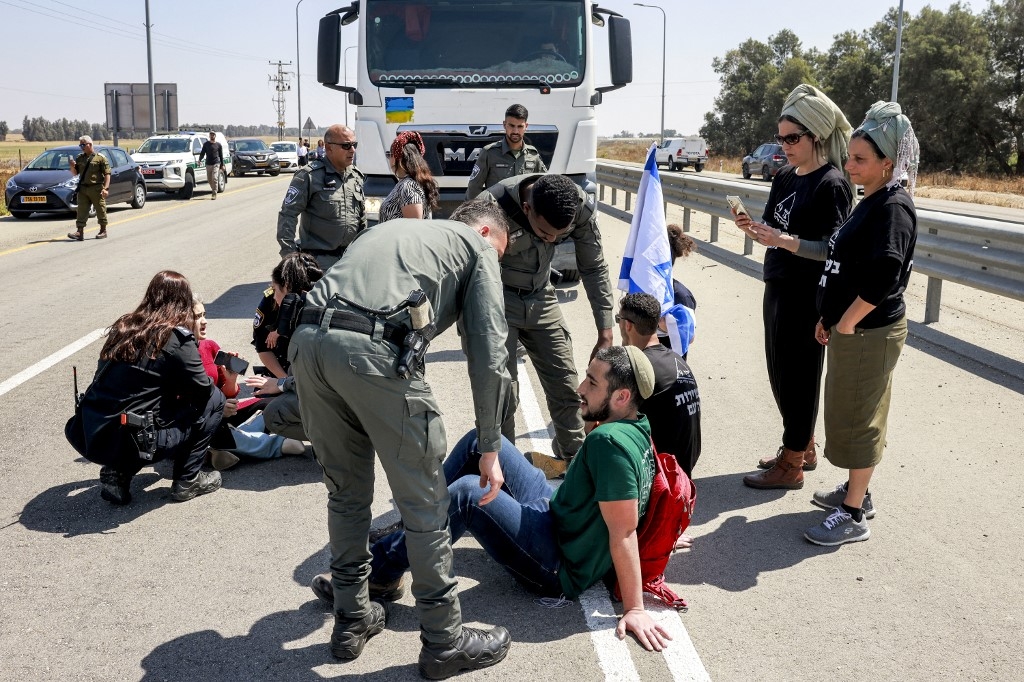
Meta has suspended the Facebook and Instagram accounts of a right-wing Israeli group called Tzav 9, responsible for organising attacks on aid convoys to the Gaza Strip.
The Tzav 9 group has been blocking aid convoys en route for Gaza since January, arguing that Palestinians should not be able to access aid until the hostages taken by Hamas on 7 October 2023 are released.
Last week, the group claimed responsibility for blocking a shipment from Jordan at the Tarqumiya checkpoint in the Hebron Hills region, spilling some of the goods from the trucks onto the ground.
Later that day, two trucks from the convoy were set on fire, according to Israeli media.
Middle East Eye understands the ban on Tzav 9, which used both Facebook and Instagram for organising its raids on convoys, was implemented for violating Meta's Coordinating Harm policy. This policy prohibits individuals from "facilitating, organising, promoting or admitting to certain criminal or harmful activities targeted at people, businesses, property or animals".
New MEE newsletter: Jerusalem Dispatch
Sign up to get the latest insights and analysis on Israel-Palestine, alongside Turkey Unpacked and other MEE newsletters
Meta confirmed that organising civilian blockades of emergency vehicles, including aid trucks, falls under that policy.
Meta has been under pressure to crack down on both pro-Israeli and pro-Palestinian media accounts accused of inciting violence or spreading misinformation since 7 October.
In December, Human Rights Watch said that Meta was guilty of “systemic censorship of Palestine content” during Israel's war on Gaza, which it attributed to “flawed Meta policies and their inconsistent and erroneous implementation, over-reliance on automated tools to moderate content, and undue government influence over content removals”.
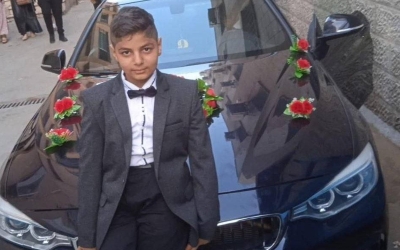
Since the start of Israel's assault on the Gaza Strip following the Hamas-led attack on 7 October, social media posts by Palestinian journalists and citizens have become key sources of information, as the Israeli government has banned international media from entering the strip.
Palestinians also use social media to call for help or get news about their loved ones amid the frequent Israeli-imposed telecommunications blackouts on the besieged territory.
Jalal Abukhater - the advocacy manager for 7amleh, the Arab Center for Social Media Advancement - told MEE that it was "crucial" for Meta to take action against groups such as Tzav 9, which actively engage in criminal and violent behaviour.
"Israeli right-wing groups have increasingly used social media to organise attacks on Palestinian villages, towns and aid trucks. Additionally, they take to the online platforms to incite violence against Palestinians in different ways, including by purchasing advertising space on Meta's platforms," he said.
"Unfortunately, Meta's moderation has not been as effective in curbing violent Hebrew content compared to its overly aggressive moderation of Palestinian and Arabic content. More balanced and effective moderation is urgently needed."
Middle East Eye delivers independent and unrivalled coverage and analysis of the Middle East, North Africa and beyond. To learn more about republishing this content and the associated fees, please fill out this form. More about MEE can be found here.


